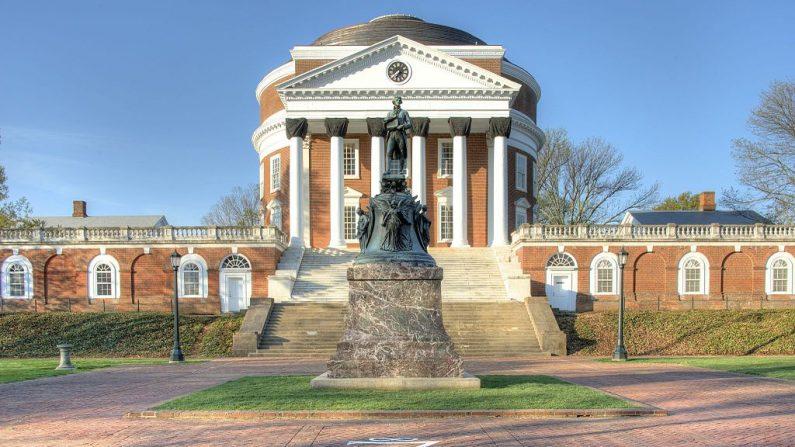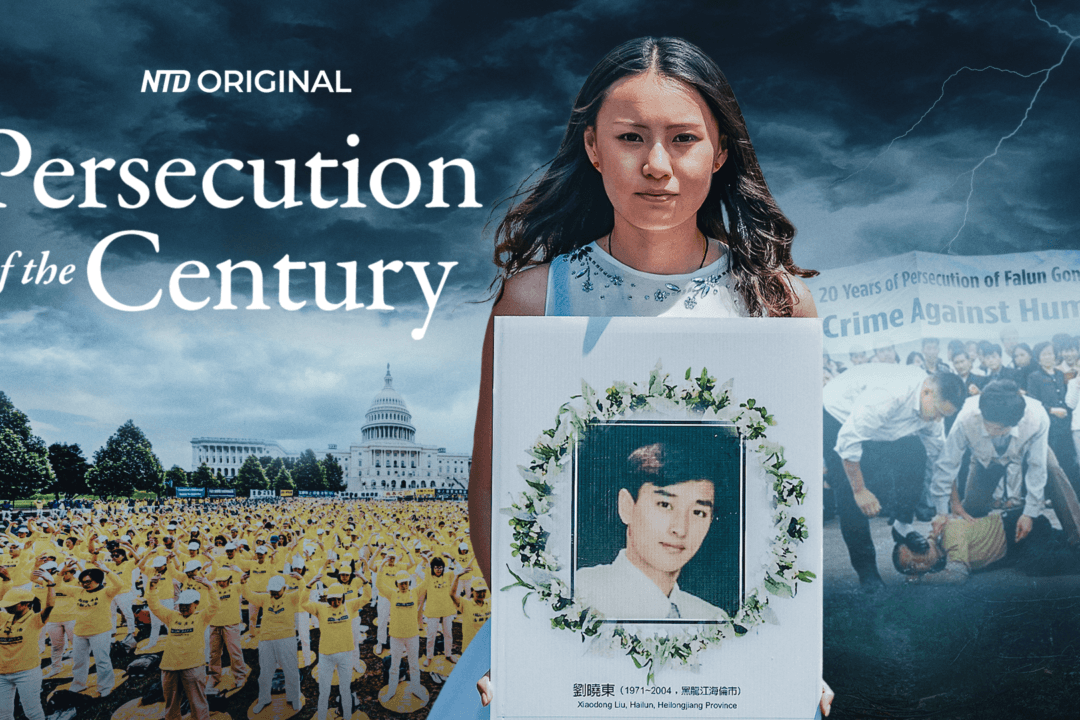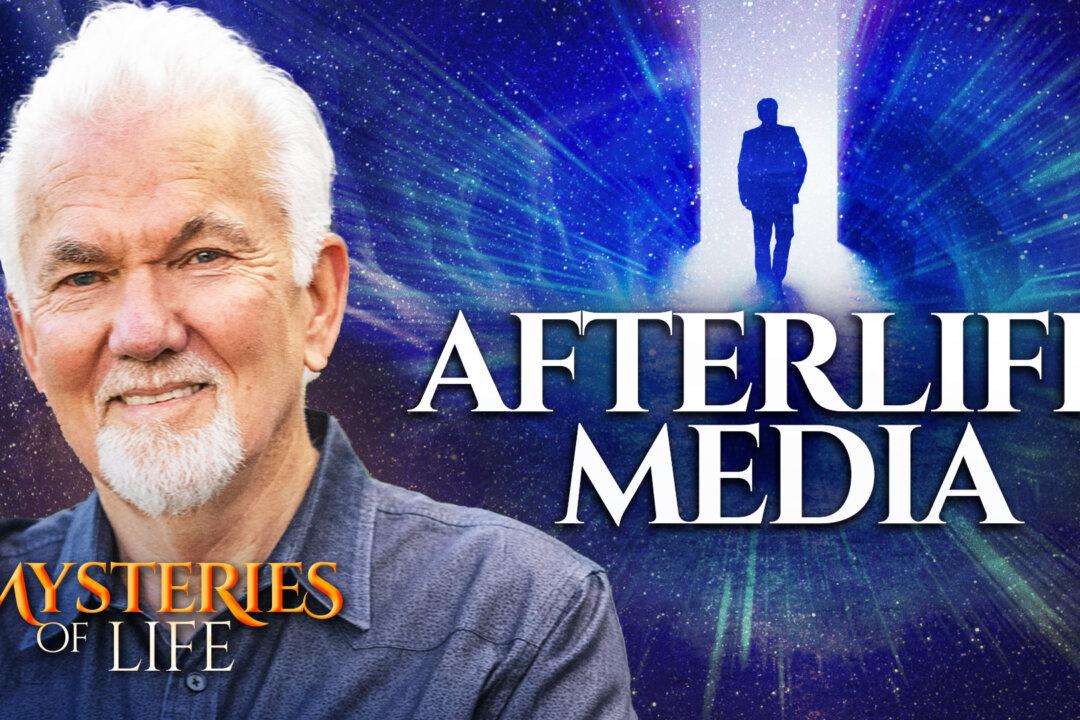People carrying Black Lives Matter signs draped a black tarp over the statue of Thomas Jefferson at the University of Virginia on Tuesday and placed placards that read “racist” and “rapist” on the monument honoring the founding father and former president.
More than 100 people gathered around the statue to protest the university’s refusal to fulfill several demands made by the Black Student Alliance, according to the Daily Progress. The Alliance demanded that the university enroll more black students and hire more black professors.





